| dc.contributor.author | Popal-Akhzarati, Karima | |
| dc.date.accessioned | 2019-04-05T10:37:49Z | |
| dc.date.available | 2019-04-05T10:37:49Z | |
| dc.date.issued | 2019 | |
| dc.identifier.uri | https://doi.org/10.17875/gup2019-1134 | |
| dc.format.extent | 101 | |
| dc.format.medium | Print | |
| dc.language.iso | ger | |
| dc.relation.ispartofseries | Göttinger Studien zur Kulturanthropologie/Europäischen Ethnologie-Göttingen Studies in Cultural Anthropology/European Ethnology | |
| dc.rights.uri | http://creativecommons.org/licenses/by-sa/4.0/deed.de | |
| dc.subject.ddc | 300 | |
| dc.subject.other | OAPEN | |
| dc.title | Inkludierte Exkludierte | |
| dc.title.alternative | Studentische Verhandlungsweisen von Rassismus und Rassismuserfahrungen | |
| dc.type | monograph | |
| dc.price.print | 20,00 | |
| dc.identifier.urn | urn:nbn:de:gbv:7-isbn-978-3-86395-367-6-0 | |
| dc.description.print | Softcover, 17x24 | |
| dc.subject.division | peerReviewed | |
| dc.relation.isbn-13 | 978-3-86395-367-6 | |
| dc.identifier.articlenumber | 8101898 | |
| dc.identifier.intern | isbn-978-3-86395-367-6 | |
| dc.bibliographicCitation.volume | 08 | |
| dc.subject.bisac | SOC000000 | |
| dc.subject.vlb | 510 | |
| dc.subject.bic | J | |
| dc.description.abstractger | Als historisch gewachsenes Machtverhältnis unterscheidet sich Rassismus in Form komplexer Konfigurationen je nach sozial-politischem sowie lokal-historischem Kontext. Die vorliegende Untersuchung nimmt studentische Verhandlungsweisen von Rassismus in den Blick und arbeitet heraus, welchen Einfluss dabei die Institution Hochschule hat. Das Adaptionspotenzial aktueller Rassismen eröffnet Betroffenen paradoxe (Verhandlungs-)Räume, sodass sie im akademischen Raum zwar (limitiert) Inkludierte sein können, aber gleichzeitig immer wieder die Erfahrung als Exkludierte machen (müssen). Die Analysen zeigen, dass im gesellschaftlichen als auch institutionellen Umgang mit Rassismus(-erfahrungen) eine Tabuisierung bzw. Dethematisierung vorherrscht. Dieser Umstand wirkt sich grundlegend auf die studentischen Verhandlungsmöglichkeiten von Rassismus aus. | |
| dc.description.abstracteng | Racism as a historically grown power relation varies in its complex configurations, depending on social-political as well as local-historical contexts. This study examines how students deal with racism, with a particular focus on the contexts and institutions of academia. Due to the adaptive potential of current forms of racism, paradox spheres (of negotiation) open up to those affected by it: On the one hand, as academics, they are included, however, in a limited way, while on the other hand they remain excluded due to their ongoing experiences of being othered. The analyses show that the social and institutional handling of racism and experiences of racism are mostly tabooed or de-thematized. These structural circumstances fundamentally affect the students’ handling of racism. | |
| dc.subject.eng | racism | |
| dc.subject.eng | students | |
| dc.subject.eng | academia | |
| dc.notes.vlb-print | lieferbar | |
| dc.intern.doi | 10.17875/gup2019-1134 | |
| dc.relation.sponsorship | Gerda-Weiler-Stiftung für feministische Frauenforschung e. V. | |
| dc.identifier.purl | http://resolver.sub.uni-goettingen.de/purl?univerlag-isbn-978-3-86395-367-6 | |
| dc.identifier.asin | 3863953673 | |
| dc.subject.thema | J | |



